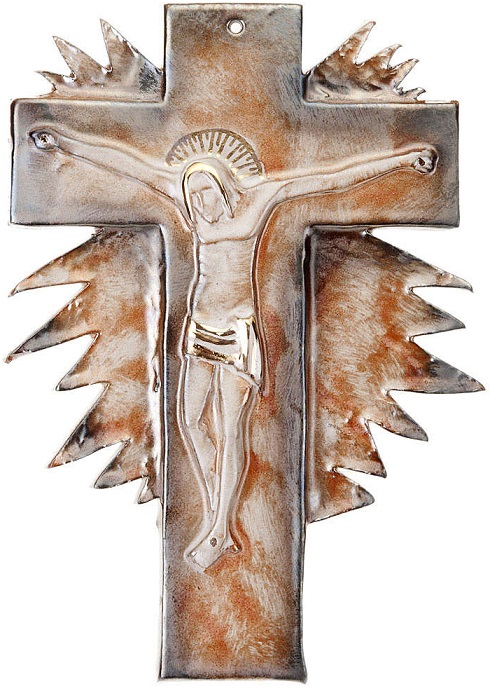Readings: Isaiah 29:11–19 | Ephesians 5:22–33 | Mark 7:1–13
Text: Mark 7:1-13
In the time of Jesus, the Pharisees were the religious guard for the nation of Israel. After the time of the Exile, and coming out as champions for righteousness after the Maccabean revolt, they held the Scriptures in the highest regard. However, they also took it upon themselves to “make a fence around the Law” by adding rules and regulations that would curb the possible disobedience of God’s people Israel. These were recorded in the Mishnah. They called it “oral Law” and conveniently left out the part that they were not actually given to Moses, and therefore did not have divine authority.

Let’s hear again how Jesus responded to this:
“Well did Isaiah prophesy of you hypocrites, as it is written,
“ ‘This people honors me with their lips, but their heart is far from me;
7 in vain do they worship me, teaching as doctrines the commandments of men.’
8 You leave the commandment of God and hold to the tradition of men.”
9 And he said to them, “You have a fine way of rejecting the commandment of God in order to establish your tradition! 10 For Moses said, ‘Honor your father and your mother’; and, ‘Whoever reviles father or mother must surely die.’ 11 But you say, ‘If a man tells his father or his mother, “Whatever you would have gained from me is Corban” ’ (that is, given to God)— 12 then you no longer permit him to do anything for his father or mother, 13 thus making void the word of God by your tradition that you have handed down. And many such things you do.”
The problem wasn’t the traditions themselves. After all, they encouraged piety and obedience to the Word of God. The problems were: 1. They made obedience to these traditions binding, as in you would be guilty for not holding to these things; and 2. Some of them were actually in conflict with the Word of God, and they chose to obey the tradition!
This kind of use of binding tradition flourished in the Christian church before the Reformation. Many such traditions had been handed down, such as the laity only receiving the Body of Christ when taking Communion; requiring celibacy for all priests and nuns; treating the Mass as something that could make peace with God or shorten a dead relative’s sentence in purgatory (another human tradition); or forcing people to go to private confession and list all their sins. (See a list in the Augsburg Confession Articles 22-28)
There are two helpful truths the Lord has for us in this account, which help keep the church on earth from error. The first is that Christians are not bound to any practice which is not established by “Thus saith the Lord.”

What are the essentials? I’ll let the Lord Himself tell us: “Make disciples of all nations, baptizing them in the name of the Father and of the Son and of the Holy Spirit, 20 teaching them to observe all that I have commanded you.” (Matt. 28:19-20); “Repentance for the forgiveness of sins should be proclaimed in [Christ’s] name to all nations” (Luke 24:47); “Truly, I say to you, whatever you [the Church] bind on earth shall be bound in heaven, and whatever you loose on earth shall be loosed in heaven.” (Matt. 18:18); “A new commandment I give to you, that you love one another: just as I have loved you, you also are to love one another.” (John 13:34); “Now as they were eating, Jesus took bread, and after blessing it broke it and gave it to the disciples, and said, “Take, eat; this is my body.” 27 And he took a cup, and when he had given thanks he gave it to them, saying, “Drink of it, all of you, 28 for this is my blood of the covenant, which is poured out for many for the forgiveness of sins.” (Matt. 26:26-28) Preaching the Gospel of Jesus, Baptism and discipleship, Confession, Christian love, the Lord’s Body and Blood—these are foundational. But how those are carried out has been applied in many different ways. What’s central to all of it is that the Word of God has the first and last say.
It’s good for us to be reminded about the right role for human tradition, especially since we are Christians who observe many handed-down traditions: the use of creeds, candles, chanting, hymnals and orders of service, a church calendar, and vestments—just to name some. Are we wrong for using them? Are others wrong who do not use them? We’re quick to say, Of course not! But then sometimes, we find ourselves looking down on our brothers, and think “if only they really had knowledge, their worship would look like ours.”
Some 50 years after the Reformation began, there were similar disagreements over which and how many of the old traditions to keep. Our forefathers wrote about this in what’s called the Formula of Concord (something I’ll be using as a preaching series soon). About human traditions, they wrote, “We believe, teach, and confess that no church should condemn another because it has fewer or more external ceremonies not commanded by God, as long as there is mutual agreement in doctrine and in all its articles as well as in the right use of the holy sacraments” Yes, there are the essentials, which God clearly spells out in His Word. But anything of human origin is not something to judge each other about. We can have fruitful discussions about the benefits of traditions or how clearly they magnify the Word of God. But never should traditions take the place of the Word of God and Christ who unites us.

The second lesson is a reminder that it is never right to set aside the Word of God and replace it with human constructions. Our problem (and I speak collectively as a human race) is that we tend to be fundamentalists. I mean, tell me what the bare minimum is and that’s what I’ll shoot for. Just memorize the Six Chief Parts of Luther’s Small Catechism, but nevermind if you ever read the Bible for yourself. And on that point I think we’ve fallen into error, even as the heirs of the Scripture-alone Reformation. It’s much more appealing to just go to tradition because that’s what we’ve always done, and we don’t have to think really hard about it. Confirmation, marriage, funerals, and church membership are all things that have been abused. We’ve given these rites a life of their own, sometimes apart from or opposed to the Word of God. Confirmation isn’t commanded by God, but woe to the pastor who doesn’t “graduate” the 13-year-olds of his congregation. Marriage belongs more to the state than the church, but often the symbolism that was meant to magnify Christ becomes about the poor sinner who is the bride. Funerals are rarely times to meditate on the preaching of the Law and the joy of Christ’s resurrection. Instead they are occasions to eulogize the deceased and bask in sentimentality. Church membership from the early church was about confessing what is taught at this church and received at this altar, but for as long as many of us can remember, many have treated it as membership in a social club with doctrine being a far second.
We need the wisdom of Jesus, and for His Word to set us straight again. From the Old Testament lesson:

You turn things upside down! Shall the potter be regarded as the clay, that the thing made should say of its maker, “He did not make me”; or the thing formed say of him who formed it, “He has no understanding”? Is it not yet a very little while until Lebanon shall be turned into a fruitful field, and the fruitful field shall be regarded as a forest? In that day the deaf shall hear the words of a book, and out of their gloom and darkness the eyes of the blind shall see. The meek shall obtain fresh joy in the Lord, and the poor among mankind shall exult in the Holy One of Israel. (Isa. 29:16-19)
The Lord does an amazing thing…for the misguided Pharisees and for Christians of every age, and even us. He came and did an amazing thing. What people had wickedly turned upside down, He set right. To people, deaf and lost in the gloom of their own religion creations, the words of God’s Book are revealed. He opens the Scriptures, and in them Christ is revealed.
People crave rules to know if they’re on the right road. But God craves people’s heart. He doesn’t want our heart far from Him, because if it that’s the case, no matter how many motions we go through, they’re meaningless. It’s this phony excuse for Christianity that troubles so many who just get fed up with religion. But the Lord abounds in steadfast love: “For as high as the heavens are above the earth, so great is his steadfast love toward those who fear him” (Psalm 103:11) He is gracious to forgive our errors and guide the people of His Church to act faithfully.
When Christ’s Church clings to Him by faith, then the traditions are not empty or contrary. They actually exalt Christ—they teach, give voice to our praise, convey the reverence and beauty of the Lord, and guide our children. Tradition simply means to hand down, and this is the faith which we have received from our forefathers and we want to pass down to our children. May the Lord help us to always hear Him, repent of our errors, and do all things to glorify Him in our lives, and within the community of His Church. Amen.



